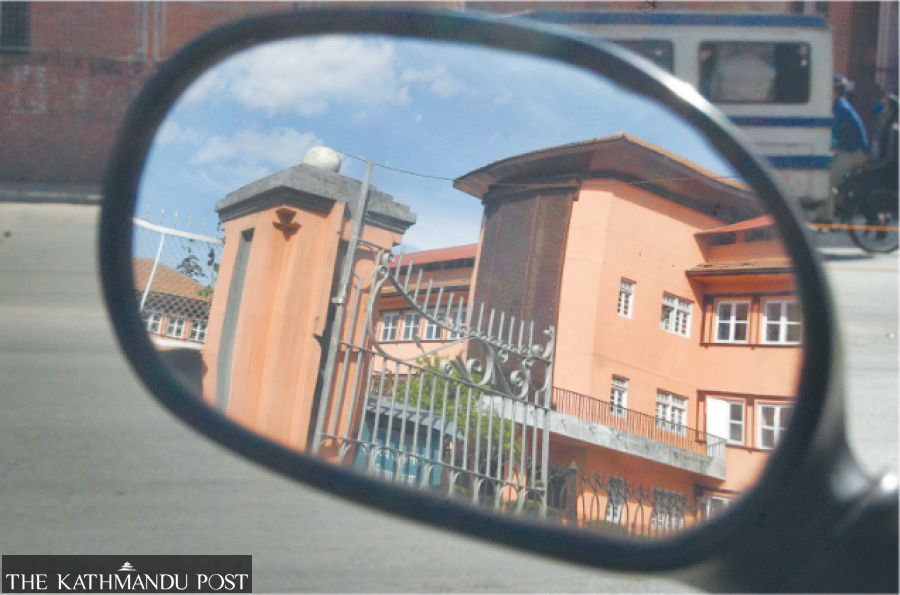National
As chief justice comes under scrutiny, concerns grow if the rot has set in
Judiciary head getting caught into controversy over ‘bargains’ with executive when legislature is dysfunctional bodes ill for democracy and constitution, observers say.
Tika R Pradhan
Nepal’s judiciary has often courted controversy, despite it having its own glorious past. In recent years, the Supreme Court has been criticised for becoming a hotbed of corruption—even an internal report prepared by one of its justices says so—and a recruitment centre for political parties. Appointments of justices under political quota have become a norm.
But on Sunday and Monday, Chief Justice Cholendra Shumsher Rana ran into controversy following media reports that he had demanded his “share” in the current Sher Bahadur Deuba Cabinet. Reports on setopati.com, onlinekhabar.com and in Kantipur, the Post’s sister paper, suggested that Rana had demanded at least two ministries for “his people”.
The Supreme Court on Monday afternoon reacted.
Issuing a statement, the top court refuted media reports, calling them baseless.
The fresh controversy surrounding the chief justice portends legal, constitutional and political consequences that can disturb the separation of powers, experts and observers say.
“I wonder if Nepal’s judiciary is on the verge of falling into an abyss or it already has,” said Balram KC, a former Supreme Court justice. “I can’t believe the judiciary is in the business of trading justice for some interests like a share in the Cabinet.”
The controversy surrounding the chief justice has emerged at a time when the country’s three key state organs have been thrown into disarray. The executive has failed to govern, the legislature is dysfunctional and the judiciary is caught in tangles, especially over whether the chief justice should be leading the Constitutional Bench to hear the petitions related to the appointments to the constitutional bodies.
The erstwhile KP Sharma Oli government had issued an ordinance on December 15 last year to amend the Constitutional Council Act-2010 to ease the provisions on calling of the meeting of the council and taking decisions.
Chief Justice Rana, a member of the council, participated in the meetings without raising a single question. The council then recommended as many as 52 individuals for different constitutional posts. Some of the individuals who were appointed were said to be close to Rana.
Half a dozen petitions have been filed at the Supreme Court against the appointments. Since the Constitutional Bench too is headed by Rana, the issue of conflict of interests arose.
Former justices say the recent developments that there have been understandings between the judiciary and the executive sharing portfolios could be detrimental to rule of law.
A former Supreme Court justice who did not wish to be named to avoid getting into controversy said that he had information that National Human Rights Commission Chief Commissioner Top Bahadur Magar has been assured by the chief justice that he should not worry about the cases against constitutional appointments.
Magar was appointed to the national rights body as per Rana’s suggestion.
Anup Raj Sharma, former chief justice, said since political actors have failed, the judiciary has emerged as the most powerful institution, thereby threatening the principle of checks and balances.
Though erstwhile prime minister Oli’s move of introducing the ordinance to amend the Constitutional Council Act in December last year was seen as a move to disturb the checks and balances, the threat to the spirit of separation of powers started back in 2017. At that time, Nepal had a similar coalition government, led by the Nepali Congress and the Communist Party of Nepal (Maoist Centre).
In a first ever in the country, as many as 249 lawmakers of the Congress and the Maoist Centre had filed an impeachment motion against the then chief justice Sushila Karki. At that time, it was viewed as the executive’s attempt to weaken the judiciary. Four years later, the judiciary now seems to be trying to kill the spirit of the separation of powers.
Experts on constitutional matters say recent developments show that the rot has set in.
“A democracy thrives when the principle of separation of powers is upheld in letter and spirit,” said Bipin Adhikari, former dean of the Kathmandu University School of Law. “If the principle of checks and balances cannot be maintained, the entire constitution comes under threat.”
According to Adhikari, the editor of “A Treatise on the Constitution of Nepal 2015”, though the Supreme Court has refuted media reports, if what has been reported by the media is true, it bodes ill for democracy and the nascent constitution, which is just six years old.
Meanwhile, reports have surfaced that Chief Justice Rana had demanded a “share” in the Cabinet when Oli was prime minister could further damage the reputation of the judiciary.
Meanwhile, Nepal Bar Association, the umbrella organisation of lawyers, has issued a statement saying its serious attention has been drawn to recent developments.
“The independence of judiciary faces a serious crisis when the chief of the judiciary seeks share in the executive and the political parties agree to oblige,” reads the statement. “It’s a matter of a grave concern not only for the legal practitioners but also for the members of the public when political parties and those heading the constitutional bodies push the country towards a failed state.”
Adhikari, the law professor, said the judiciary getting dragged into controversy again and again is not a good sign for the country.
“It’s quite concerning that the legislature has lost its dignity, the executive is in a shambles and the judiciary is becoming political parties' puppet,” said Adhikari. “It’s incumbent upon the judiciary to come clean and convince people.”




 16.12°C Kathmandu
16.12°C Kathmandu















